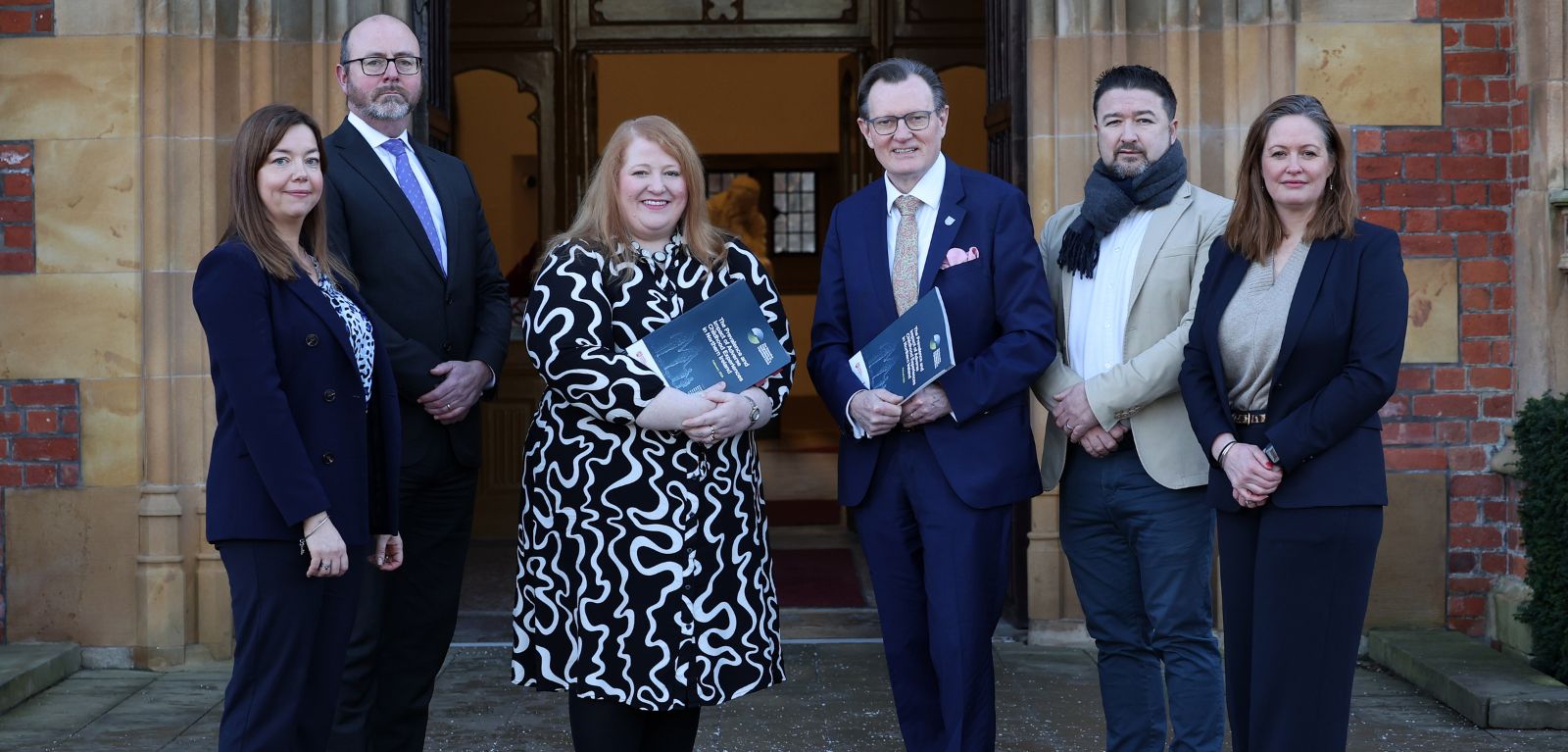Landmark study reveals widespread impact of childhood trauma in Northern Ireland

A research study led by School of SSESW academic Colm Walsh is the first comprehensive assessment of Adverse Childhood Experiences (ACEs) among Northern Ireland's adult population, revealing significant levels of trauma that continue to impact all communities and across generations.
Commissioned by the Executive Programme on Paramilitarism and Organised Crime, there are few other studies like this in post-conflict settings such as Northern Ireland.
“For the first time, the true extent of childhood trauma and its impact on all people in Northern Ireland has been documented and measured for all to see,” said Justice Minister Naomi Long (third left) during the report launch event at Queen’s.
"The findings from this research are both striking and sobering. We now have crucial evidence of how childhood trauma shapes life outcomes in Northern Ireland. The findings show clear correlations between higher exposure to trauma in childhood and many negative outcomes, including poorer educational achievement, chronic health conditions like rheumatoid arthritis and chronic pain, increased exposure to domestic violence, addiction, poor mental health and health-harming behaviours. These are significant findings, which will impact and inform policy and delivery across the Executive.”
“That 60% of our adult population reports at least one traumatic childhood event, with nearly one in five experiencing four or more, represents a major public health challenge. More specifically, the finding that 30% of respondents reported conflict-specific adversities illuminates the unique context of trauma in Northern Ireland. Perhaps most concerning is the evidence that, despite being almost 27 years past the Good Friday Agreement, our younger generation continues to experience trauma linked to paramilitary activity.”
Dr Colm Walsh commented:
"What we see here is the long arm of early adversities, the impact of which extends beyond childhood, affecting a number of key outcomes, ranging from educational attainment, physical and mental health, substance use, and offending. Compared with those who report no ACEs, those who reported four or more, were almost nine times more likely to be excluded from school as a child, eight times more likely to have been arrested and three times more likely to have used illicit drugs in the previous year as an adult."
The study also highlighted that both ACEs and Troubles-related trauma were disproportionately concentrated in socio-economically disadvantaged communities, creating further challenges for some areas.
The research was initiated following observations of high trauma levels among participants in the Executive Programme on Paramilitarism and Organised Crime, highlighting the need for trauma-informed approaches across Northern Ireland.
Adele Brown, Programme Director (right), said:
"These findings underscore the critical importance of understanding and addressing childhood trauma in Northern Ireland. Twenty seven years on from a historical peace agreement, our young people deserve a level playing field where intergenerational and domestic trauma doesn’t hold them back. They have the right not just to peace but a quality of peace. That means making sure that we all question the impact trauma could be having on our friends, family and colleagues and public services and learn how to respond effectively to it. This is much wider than specialist responses, this is about everyday interactions, too.
“We very much hope that the study's findings will inform policy development and service provision across health, education, justice, and social services sectors in Northern Ireland.”
